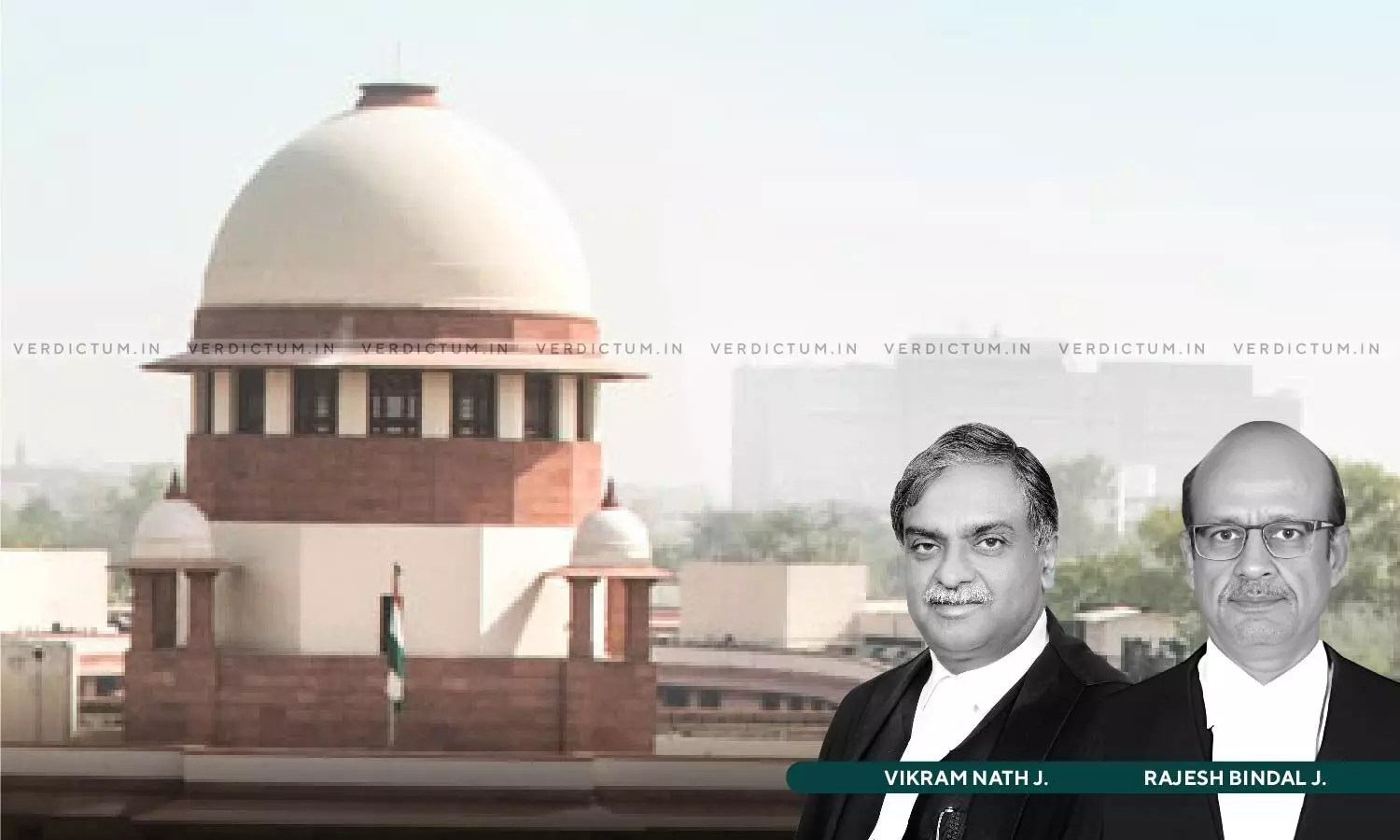
Certificate U/S 65B Evidence Act Can Be Produced At Any Stage If The Trial Is Not Over : Supreme Court
 |
|The Supreme Court reiterated that the certificate under Section 65-B of the Indian Evidence Act can be produced at any stage if the trial is not over.
The court, in Bangalore bomb blasts case, said that the fair trial in a criminal case does not mean that it should be fair to one of the parties. Rather, the object is that no guilty should go scot-free and no innocent should be punished, the court said.
The Court was dealing with a case wherein the appellant/State had filed an appeal before the Karnataka High Court which upheld the order of the Trial Court. Vide this order, the applications filed by the prosecution under Section 311 of the Cr.PC. was rejected.
The two-Judge Bench of Justice Vikram Nath and Justice Rajesh Bindal held, “Fair trial in a criminal case does not mean that it should be fair to one of the parties. Rather, the object is that no guilty should go scot-free and no innocent should be punished. A certificate under Section 65-B of the Act, which is sought to be produced by the prosecution is not an evidence which has been created now. It is meeting the requirement of law to prove a report on record.”
The Bench observed that by permitting the prosecution to produce the certificate under Section 65B of the Indian Evidence Act, 1872, will not result in any irreversible prejudice to the accused.
Additional Advocate General Aman Panwar appeared on behalf of the appellant/State while Advocate Balaji Srinivasan appeared on behalf of the respondents.
In this case, serial bomb blasts took place in Bangalore on July 25, 2008 which shocked not only the Bangalore city or the State but the entire country, the innocents suffered. The investigation had to be scientific and at the instance of the one of the accused, electronic devices such as one Laptop, one external Hard Disc, 3 Pen Drives, 5 floppies, 13 CDs, 6 SIM cards, 3 mobile phones, one memory card and 2 digital cameras etc. were recovered and seized. These were sent for examination to the CFSL, Hyderabad and a report was received in 2010. The same was submitted before the Trial Court in 2012 and sought to be proved at the time of recording of statements.
The accused vide an application, objected to taking the report in evidence in the absence of a certificate under Section 65- B of the Act. Immediately, thereafter a certificate got issued under Section 65-B of the Act and an application was filed under Section 311 of the Cr.P.C. seeking to recall one witness and to produce the aforesaid certificate in evidence. The trial was still pending and the Trial Court without appreciating the legal position in this regard had dismissed the application. The order was upheld by the High Court. It was primarily for the reason of delay in producing the certificate under Section 65B of the Act.
The Supreme Court in the above regard observed, “… it cannot be inferred that there was delay of six years in producing the certificate. In fact, report received from CFSL, Hyderabad on the basis of the contents of electronic devices dated 29.11.2010 was already placed before the Trial Court on 16.10.2012. In fact, the stand of the prosecution was that when the original electronic devices were already produced and marked MOs, there was no need to produce the certificate under Section 65-B of the Act. Still, as a matter of abundant caution, the same was produced that too immediately after objection was raised by the accused against the production of CFSL report prepared on the basis of the electronic devices seized.”
The Court further said that the accused will have full opportunity to rebut the evidence led by the prosecution and this is the purpose for which Section 311 of the Cr.P.C. is there. It also noted that the object of the Code is to arrive at truth.
“However, the power under Section 311 of the Cr.P.C. can be exercised to subserve the cause of justice and public interest. In the case in hand, this exercise of power is required to uphold the truth, as no prejudice as such is going to be caused to the accused”, added the Court.
Accordingly, the Apex Court allowed the appeal, set aside the orders, and directed the Trial Court to proceed with the matter further.
Cause Title- State of Karnataka v. T. Naseer @Nasir @Thandiantavida Naseer @Umarhazi @Hazi & Ors. (Neutral Citation: 2023 INSC 988)